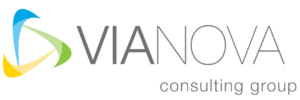When it comes to facilitating meetings and retreats, there are countless tools and techniques in our toolbox.
Here is a list of our favorites:
- Liberating Structures is a set of techniques to involve and engage all participants in problem-solving and decision-making processes. These techniques break down hierarchical structures and encourage participation and collaboration.
- Appreciative Inquiry focuses on discovering and amplifying what works well within an organization, team, or community. It is designed to foster positive change by identifying and building upon existing strengths.
- World Cafe involves small group discussions around a central question or topic, with participants rotating between tables to share ideas and perspectives. It is designed to encourage dialogue and collective learning.
- S.W.O.T. Analysis helps groups identify their strengths, weaknesses, opportunities, and threats. It is designed to provide a structured approach to strategic planning and decision-making.
- S.O.A.R. Analysis identifies an organization’s strengths, opportunities, aspirations, and results. It is designed to help organizations build on their current strengths and vision for the future.
- Q-Storming involves brainstorming questions instead of ideas. This technique encourages creative and critical thinking by challenging assumptions and exploring new perspectives.
- Design Thinking is a problem-solving approach that involves empathy, creativity, and experimentation. It is designed to encourage innovation and the development of user-centered solutions.
- Stakeholder Mapping helps organizations identify and analyze their stakeholders. It is designed to help organizations understand the perspectives and needs of their stakeholders and build effective engagement strategies.
- DISC is a personality assessment tool that categorizes individuals into four personality types: Dominance, Influence, Steadiness, and Conscientiousness. It is designed to help individuals and teams better understand their communication styles and preferences.
- Myers Briggs is a personality assessment tool that categorizes individuals into 16 personality types based on their preferences for extraversion/introversion, sensing/intuition, thinking/feeling, and judging/perceiving. It is designed to help individuals and teams better understand their strengths and communication styles.
- STEEP Analysis captures the Social, Technological, Economic, Environmental, and Political factors that can impact an organization or project. It is designed to help organizations identify potential risks and opportunities in their external environment.
- Graphic Facilitation using visual aids such as charts, diagrams, and sketches to enhance group discussions and decision-making processes. It is designed to promote engagement, understanding, and retention of information.
Are you tired of meetings and retreats that feel like a waste of time, lack direction, or fail to produce results? We can help. Check out our Meeting & Retreat Facilitation Services, or book a quick consultation today.


